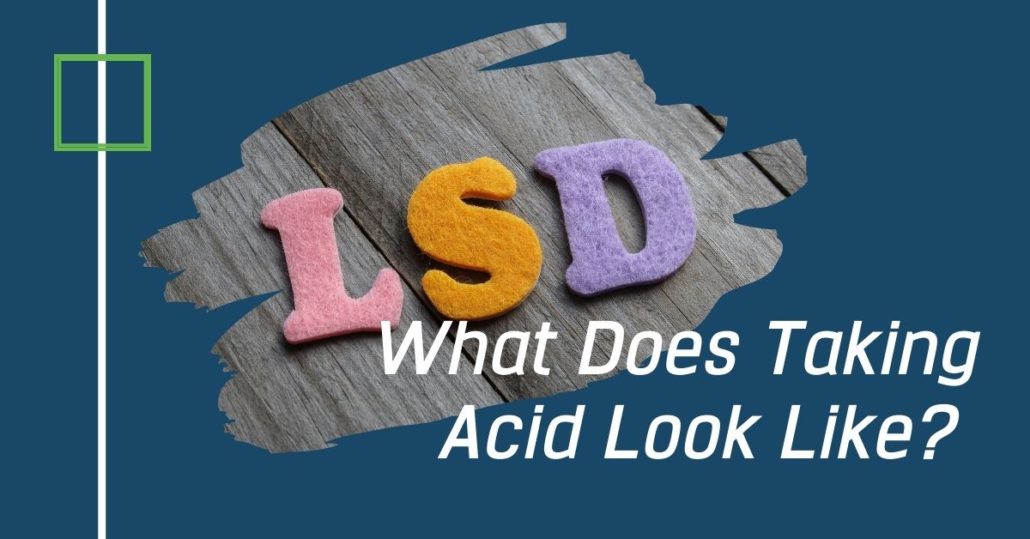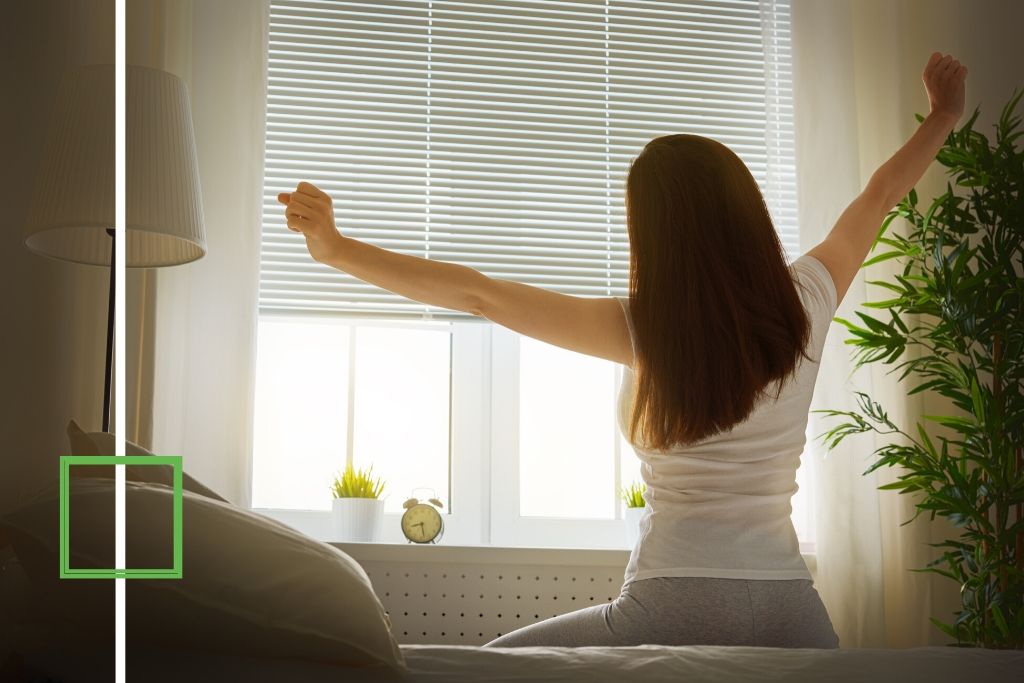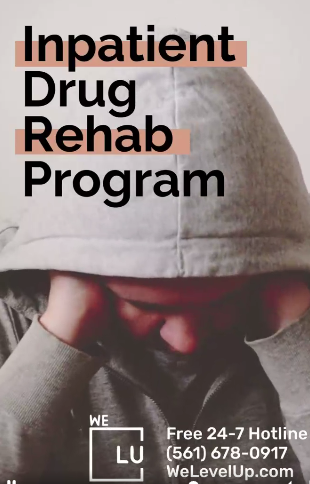What is Microdosing LSD?
Microdosing LSD is a new way of using drugs that is becoming popular among people of all ages and backgrounds, from stay-at-home moms to CEOs. Microdosing means taking a small amount of LSD or other hallucinogens like Psilocybin mushrooms, often called “magic mushrooms.” Microdosing certain psychedelic substances improves mood, wakes the mind and body, and help people think of creative ideas. Early research supports the idea that controlled microdosing of hallucinogens, either in small doses or with the help of a doctor, could be a way to treat mental health problems like depression, anxiety, and post-traumatic stress disorder (PTSD).
But it’s imperative to realize that using any drug often and consistently, especially a strong one like LSD, comes with risks and is not always safe. Some people might be more likely to become addicted if they do these things. The fact that many hallucinogens are classified as Schedule I drugs by the government makes it hard to do scientific studies that the FDA approves. Much of the research on microdosing is also based on information from people who call themselves “microdoses.” These people may have a favorable view of the practice, which could change the reported results. Because of this, there aren’t many well-supported claims about the benefits of psychedelics for mental health treatment.
Origins of LSD Microdose
Microdosing with LSD and other hallucinogens became prominent after users began writing about their online experiences. Practitioners bragged about the “benefits” of microdosing on the message boards of Psychedelic information sites like Erowid and online community forums like Reddit.
Although LSD and Magic Mushrooms are federally illegal in the United States and many other countries, many people attest that they experience positive cognitive and behavioral changes when taken in low doses. Microdosing anecdotes come from people of all ages and walks of life, including young people working in the tech industry, middle-aged parents, and high-ranking corporate executives.
However, these testimonies aren’t provided by doctors or psychiatrists. Using LSD or any other psychedelic can lead to serious health, social, and legal problems and is therefore prohibited.

Skip To:
Learn More:
Dangers of Microdosing LSD
There is a common misconception that Hallucinogenic drugs are relatively safe because they’re not as physically addictive as other illicit drugs, such as benzodiazepines and opioids. However, while Hallucinogens typically don’t produce severe symptoms of physiological addiction, it is possible to become psychologically addicted to any drug of abuse.
Furthermore, microdosing can induce euphoria, heightened awareness, and general well-being. The neurotransmitters creating such a positive association may put certain people at risk of developing a psychological addiction.
Fundamentally, addiction is harmful because, as a chronic disease, it will grow and take prevalence over other aspects of one’s life. Another concern with microdosing is that many potential harms and side effects are unknown. Many of the aforementioned studies systematically track the experiences of people already microdosing using an anonymous online system. This makes it more difficult to control participants’ substance use and get accurate results. Instead, results rely on the accuracy and honesty of participants’ reports.
Furthermore, some drugs with Hallucinogenic properties pose potential risks when microdosing due to other characteristics that many classic Hallucinogens (such as MDMA) don’t have. MDMA, commonly sold on the street as Ecstasy or Molly, is typically associated with Hallucinogens because it can produce hallucinations when taken in specific quantities.
However, most classify Ecstasy as a Stimulant due to its Amphetamine-like effects. Stimulants, including Ecstasy, increase a person’s risk of developing various heart diseases and death. This is due to MDMA’s activation of the 5-HT2B serotonin receptor, which LSD and Psilocybin Mushrooms also activate.
Effects of Microdose of LSD
LSD can be highly unpredictable and affect different people differently. The fact that it is made in illicit laboratories means that a person may never be sure exactly what else may be contained in the version of the drug taken. While some people may experience distorted perceptions of their body image, altered perception of the size and shape of surrounding objects, modifications in their depth perception and other senses, and increased euphoria, others may become paranoid, experience a panic attack, have an intense fear of death, and suffer from psychosis when taking LSD. These adverse symptoms are commonly referred to as a bad trip.
Microdosing LSD, the practice of consuming very low doses of the hallucinogenic compound, has gained attention for its reported effects on cognition, mood, and creativity. While scientific research on this topic is limited, anecdotal accounts from individuals who microdose suggest several perceived benefits:
- Enhanced Mood: Many LSD microdosers claim an improvement in mood, describing increased happiness, positivity, and overall well-being. Some even report relief from symptoms of depression and anxiety.
- Increased Focus and Productivity: Microdosing enhances cognitive functioning, including improved focus, concentration, and productivity. Some individuals find it easier to engage in tasks that require sustained attention.
- Creativity Boost: Microdosing has been associated with enhanced creative thinking and problem-solving abilities. Some users report an increased flow of ideas and a willingness to explore unconventional concepts.
- Heightened Sensory Perception: Microdosers often mention heightened sensory experiences, where colors, textures, sounds, and tastes become more vivid and captivating.
- Mindfulness and Present-Moment Awareness: Microdosing is sometimes linked to increased mindfulness and heightened appreciation for the present moment. Users may feel more connected to their surroundings and sensations.
- Reduced Anxiety: Some individuals claim that microdosing LSD helps alleviate anxiety symptoms, promoting relaxation and calmness without the overwhelming effects of a total dose.
- Social Ease: Microdosing is thought to reduce social inhibitions and promote more effortless interactions in social settings. Some users feel more empathetic and connected to others.
- Energy and Motivation: Microdosers sometimes report increased energy levels and motivation, leading to improved physical activity and engagement in daily routines.
- Improved Sleep Patterns: While not universally experienced, some users suggest that microdosing could positively impact sleep quality, promoting restful sleep and alleviating insomnia.
These perceived benefits are based on self-reported experiences and have not been conclusively proven through scientific research. Responses to microdosing can vary widely among individuals, and factors such as dosage, personal biology, and mindset play a role in shaping the effects.
Additionally, the legality of LSD and the lack of standardized dosing protocols raise ethical and legal concerns surrounding microdosing. Anyone considering LSD microdosing should approach it cautiously, seek professional guidance, and prioritize their health and safety.
In conclusion, while anecdotal reports suggest various potential benefits of microdosing LSD, more research is needed to understand its effects, mechanisms, and long-term implications comprehensively.
LSD Drug Facts
What is LSD?
LSD is a potent hallucinogen with a high
potential for abuse and currently has no accepted
medical use in treatment in the United States.
What is its origin?
LSD is produced in clandestine laboratories in the
United States.
What are common street names?
Common street names include:
- Acid.
- Dots.
- Mellow.
- Yellow.
- Window Pane.
What does it look like?
LSD is an odorless and colorless substance with
a slightly bitter taste. LSD is available in saturated
absorbent paper (e.g., blotter paper, divided
into small, decorated squares, with each square
representing one dose), tablets or “micro dots,”
saturated sugar cubes, or in a liquid form.
How is it abused?
LSD is abused orally.
What is its legal status in the United States?
LSD is a Schedule I substance under the
Controlled Substances Act. Schedule I
substances have a high potential for abuse, no
currently accepted medical use in treatment in the
United States, and a lack of accepted safety for
use under medical supervision.

Get Your Life Back
Find Hope & Recovery. Get Safe Comfortable Detox, Addiction Rehab & Mental Health Dual Diagnosis High-Quality Care at the We Level Up Treatment Centers Network.
Hotline (877) 378-4154LSD Abuse Statistics
Individuals of all ages use LSD. Data reported in the National Household Survey on Drug Abuse indicate that an estimated 20.2 million U.S. residents aged 12 and older used LSD at least once in their lifetime. The survey also revealed that many teenagers and young adults use LSD–742,000 individuals aged 12 to 17 and 4.5 million individuals aged 18 to 25 used the drug at least once.
5.5+ million people
An estimated 5.5+ million people in the U.S. used hallucinogens in the past year, in 2019
Source: NIDA
4 %
LSD use between 2002 and 2019 increased overall and in all age groups, with the past 12-month rate increasing from 0.9 percent in 2002 to 4 percent in 2019
Source: NIDA
56.4%
LSD use in the US jumped 56.4% from 2015 to 2018
Source: NCBI
LSD Microdosing and the Shifting Social Implications
Microdosing LSD, when a small amount of the hallucinogen is taken, has gotten much attention because of its possible effects on cognition and mood. Microdosing has changed the social implications of drug use, which should be considered. It used to be associated with counterculture movements and recreational use.
As more people from different backgrounds, such as professionals, artists, and housewives, try microdosing, society’s talk about psychedelics is changing. This trend shows that people are becoming more interested in how these substances might be used to improve focus, creativity, and emotional health. But as the social narrative changes, it also raises questions about legality, ethics, and the need for scientific research to back up claims.
The fact that microdosing is becoming more popular shows that people’s ideas about psychedelics are changing and that they are no longer considered dangerous. Still, the practice is in a legal gray area in many places, so discussions about how it should be used and its benefits should be done with care. As microdosing becomes more popular, it’s essential to talk about its long-term effects, how it should be regulated, and how people should act when they do it.
People who Microdose LSD And Mental Illness
Microdosing LSD, which involves consuming sub-perceptual doses of the hallucinogenic compound, has sparked curiosity and debate regarding its impact on mental health, especially among individuals with mental illness. While some proponents suggest potential therapeutic benefits, it’s essential to consider the complex interplay between microdosing and mental well-being.
- Perceived Benefits for Mental Health: Advocates of microdosing often cite anecdotal reports of improved mood, enhanced focus, and reduced anxiety as potential benefits. Some individuals with mental health conditions, such as depression and anxiety, have reported experiencing temporary relief from symptoms after microdosing. They believe that the subtle effects of microdosing may offer an alternative approach to traditional treatments.
- Potential Risks and Considerations: However, the relationship between microdosing and mental illness is not straightforward. Microdosing can potentially trigger adverse reactions, especially in individuals predisposed to or diagnosed with mental health disorders. The altered states of consciousness associated with psychedelics could exacerbate symptoms or induce anxiety, paranoia, or dissociation in vulnerable individuals.
- Scientific Research and Clinical Context: The current body of scientific research on microdosing LSD and its effects on mental health is limited and often relies on self-reported experiences. Controlled clinical studies exploring the impact of microdosing on mental illness are relatively scarce. As a result, conclusive evidence regarding the efficacy and safety of microdosing as a treatment for mental health conditions remains elusive.
Get Help. Get Better. Get Your Life Back.
Searching for Accredited Drug & Alcohol Rehab Centers Near You? Or Mental Health Support?
Even if you have failed previously, relapsed, or are in a difficult crisis, we stand ready to support you. Our trusted behavioral health specialists will not give up on you. Call us when you feel ready or want someone to speak to about therapy alternatives to change your life. Even if we cannot assist you, we will lead you wherever you can get support. There is no obligation. Call our hotline today.
FREE Addiction Hotline – Call 24/7How Does Microdosing LSD Work?
Microdosing LSD involves taking small doses of LSD that are not strong enough to induce psychedelic effects, cause intoxication, or significantly impact consciousness. Typically, a person takes these small doses of psychedelics routinely, such as every set number of hours or days for an extended period. There is no set amount of LSD that someone should take when microdosing. However, the dosage is often around one-tenth to one-twentieth of a recreational dose.
Microdosing LSD is a fairly straightforward process. Essentially, you need to prepare your microdoses with volumetric dosing, consume the microdose at the appropriate time, and follow a month-long protocol. Volumetric dosing involves submerging a full tab into distilled water and taking small, measured quantities of the water to microdose. To do this, drop a 100ug tab into 10ml of distilled water or alcohol. Leave it for a day or so, and keep it dark. Once the microdose of LSD has come entirely off the tab, 1ml of the liquid will contain 10ug of LSD.

Microdosing LSD How Long Does it Last?
The threshold level (the amount at which people notice a mild psychedelic effect) varies but is usually between 10 and 50 micrograms. The (sub-perceptual) effect of a microdose of LSD can last up to 10 hours, making the time of ingestion especially important. In a light trip, you are high and maintain a certain degree of control and overview. With a heavy trip, this disappears, and there is no more control. Thinking is highly associative and seems to go in circles.
Comfortable Facilities & Amenities
High-Quality Addiction & Mental Health Rehabilitation Treatment
Rehab Centers TourRenowned Addiction Centers. Serene Private Facilities. Inpatient rehab programs vary.
Addiction Helpline (877) 378-4154Proven recovery success experience, backed by a Team w/ History of:
15+
Years of Unified Experience
100s
5-Star Reviews Across Our Centers
10K
Recovery Success Stories Across Our Network
- Low Patient to Therapist Ratio
- Onsite Medical Detox Center
- Comprehensive Dual-Diagnosis Treatment
- Complimentary Family & Alumni Programs
- Coaching, Recovery & Personal Development Events
Long-term Effects of Microdosing LSD and Abuse
One of the possible threats of abusing LSD in any amount, including microdosing, maybe the risk of experiencing “flashbacks” days, months, or even years after discontinuing the drug. A flashback is a re-experiencing the drug’s effects that may occur unexpectedly and without warning. These flashbacks may contain both positive and negative experiences and be quite disruptive.
LSD use can also cause the onset of hallucinogen-persisting perception disorder (HPPD), which may cause visual disturbances at such a rate that everyday life and the ability to function are typically impaired. For those suffering from HPPD, moving objects may appear to have attached trails.
LSD affects serotonin levels in the brain, one of the chemical messengers responsible for signaling pleasure. As a result, it may disrupt the natural way the brain processes rewards and therefore feels pleasure. Other drugs that affect the reward pathways in the brain are highly addictive and can cause the brain’s circuitry to be rewired, thus making it more difficult for individuals to feel good without the drug’s interference. As a result, depression is a common side effect of drug addiction and withdrawal.
Microdosing and its potential long-term side effects have not been adequately studied at this point, so it’s difficult to assess the effects of the practice entirely.
Taking any illicit substance is dangerous, even in a small amount. Given the illegality of LSD and other Hallucinogens, there is a high possibility for drug dealers to lace them with other illicit drugs like Fentanyl, Ketamine, or Meth. These contaminants are not only highly addictive but may cause a lethal overdose.
In addition to these threats, microdosing exposes users to consistent doses of a powerful drug that repeatedly activates a given area of the brain instead of the less-frequent use typically connected with “tripping.” This only increases the risk of developing an addiction or dependency.
If you want to feel happier, boost your dopamine levels, and increase your creativity, microdosing LSD is not the answer. Natural, drug-free ways, like eating the proper diet, exercising, and mindfulness meditation, can help you without exposing yourself to addiction risks. If you or a loved one is struggling with an addiction, contact We Level Up NJ today to discuss treatment options.

World-class, Accredited, 5-Star Reviewed, Effective Addiction & Mental Health Programs. Complete Behavioral Health Inpatient Rehab, Detox plus Co-occuring Disorders Therapy.
CALL (877) 378-4154End the Addiction Pain. End the Emotional Rollercoaster. Get Your Life Back. Start Drug, Alcohol & Dual Diagnosis Mental Health Treatment Now. Get Free No-obligation Guidance by Substance Abuse Specialists Who Understand Addiction & Mental Health Recovery & Know How to Help.
LSD Abuse Treatments
There is a strong link between mental health and LSD drug abuse. Individuals who struggle with mood disorders like depression and anxiety are more susceptible to developing an addiction to drugs or alcohol, often to self-medicate symptoms of their underlying mental health condition. These co-occurring disorders can make each other worse without proper treatment.
To determine the most effective ways to treat polysubstance, it’s crucial to get an accurate assessment of all the symptoms. When a mental health professional has evaluated the symptoms, it may be determined that another form of mental condition is present and needs a particular type of treatment. Very often, some combination of psychotherapy, medication, and lifestyle changes are effective for coping with functional.
Detox Treatment in New Jersey Rehab Center
The first step in treatment is a medical detox. It will help you navigate the complicated withdrawal process but doesn’t address thought and behavior patterns contributing to drug abuse. Various treatment approaches and settings can help provide the ongoing support necessary to maintain long-term sobriety after you complete detox.
Cravings are very common during detox and can be challenging to overcome. This often leads to relapse. Constant medical care provided during inpatient treatment helps prevent relapse. Clinicians can provide the necessary medication and medical expertise to lessen cravings and the effects of withdrawals.
Psychotherapy
Several different modalities of psychotherapy have been used in the treatment of depression, including:
- Cognitive Behavioral Therapy (CBT) – is an effective treatment that involves changing both the patterns of negative thoughts and the behavioral routines which are affecting the daily life of the depressed person for various forms of depression.
- Dialectical Behavioral Therapy – is a comprehensive mental health and substance abuse treatment program whose ultimate goal is to aid patients in their efforts to build a life worth living. The main goal of DBT is to help a person develop what is referred to as a “clear mind.”
- Person-Centered Therapy – is a strategy that allows and encourages clients to understand and resolve their concerns in a safe, supportive environment.

Dual Diagnosis Treatment Centers New Jersey
Substance abuse and mental health disorders often co-occur. Traumatic experiences can often result in mental health disorders and substance abuse. Dual diagnosis programs in New Jersey treat both of these issues together. The best approach for the treatment of dual diagnosis is an integrated system. This strategy treats both the substance abuse problem and the mental disorder simultaneously. Regardless of which diagnosis (mental health or substance abuse problem) came first, long-term recovery will depend mainly on the treatment for both disorders done by the same team or provider.
LSD Addiction Rehab Near Me
Please, do not try to detox on your own. The detox process can be painful and difficult without medical assistance. However, getting through the detox process is crucial for continued treatment. We Level Up provide proper care with round-the-clock medical staff to assist your recovery through our opioid addiction treatment program medically. So, reclaim your life, and call us to speak with one of our treatment specialists. Our counselors know what you are going through and will answer any of your questions.
LSD addiction is a condition that can cause significant health problems, such as overdosing on LSD. We Level Up NJ rehab treatment & detox center can provide you, or someone you love, the tools to recover from this with professional and safe treatment. Feel free to call us to speak with one of our counselors. We can inform you about this condition and clarify issues like withdrawal symptoms. Our specialists know what you are going through. Please know that each call is private and confidential.
Experience Transformative Recovery at the We Level Up Treatment Center.
See our authentic success stories. Get inspired. Get the help you deserve.



Start a New Life
Begin with a free call to an addiction & behavioral health treatment advisor. Learn more about our dual-diagnosis programs. The We Level Up treatment center network delivers various recovery programs at each treatment facility. Call to learn more.
- Personalized Care
- Caring Accountable Staff
- Comfortable Amenities
- Licensed & Accredited
- Renowned w/ 5-Star Reviews
We’ll Call You
“We Level Up Saved My Life” Inspirational Video
“We Level Up honestly saved my life. Before treatment, my life was in complete chaos. Every day, it was just getting up early, trying to get my next. I had no contact with my children for about two years. I completely isolated myself from my family and friends. Super depressed, super lonesome.
I guess I felt like I was at rock bottom, and I found We Level Up. I called to set up my plane ticket. They had got me down here within hours. My life is completely changed. I’m starting to get my relationships back and my family back. I’m just grateful that I’m here and I’m alive, and you don’t have to struggle anymore. Make that first step; take that leap of faith because it will change your life.”
Nicole’s Addiction Recovery Testimonial
Search We Level Up NJ Microdosing LSD, Can it Help or Harm Mental Health?Topics & Resources
Sources:
- Sandoiu, Ana. (2019) Psychedelics: Risks and Benefits of Microdosing Revealed. Retrieved on June 18, 2019, from https://www.medicalnewstoday.com/articles/324609.php Learn More: Microdosing LSD
- Oxford Treatment Center. (2019) Drug Microdosing: Is it Safe or Dangerous?. Retrieved on Jun 18, 2019, from https://www.oxfordtreatment.com/microdosing/ Learn More: Microdosing LSD
- Dolan, Eric W. (2019). Microdosing reduces depression and mind wandering but increases neuroticism, according to first-of-its-kind study. Retrieved on June 18, 2019, Learn More: Microdosing LSDfrom https://www.psypost.org/2019/02/microdosing-reduces-depression-and-mind-wandering-but-increases-neuroticism-according-to-first-of-its-kind-study-53131 Learn More: Microdosing LSD
- Weiss, Haley. (2019). A New Chapter in the Science of Psychedelic Microdosing. Retrieved on June 20, 2019, from https://www.theatlantic.com/health/archive/2019/03/psychedelic-microdosing-depression-anxiety/584119/ Learn More: Microdosing LSD
- Garlick, Hattie. (2019). ‘It makes me enjoy playing with the kids’: is microdosing mushrooms going mainstream? Retrieved on June 18, 2019, from https://www.theguardian.com/science/2019/may/03/psychedelic-drugs-women-taking-tiny-doses-hattie-garlick Learn More: Microdosing LSD
- Barnes, Billy. (2018). Microdosing | Silicon Valley’s Newest Smartdrug? Retrieved on June 18, 2019, from https://medium.com/@braythirteen/microdosing-silicon-valleys-newest-smartdrug-a1f7da795bb0 Learn More: Microdosing LSD
- Glatter, Robert. (2015). LSD Microdosing: The New Job Enhancer In Silicon Valley And Beyond? Retrieved on June 20, 2019, from https://www.forbes.com/sites/robertglatter/2015/11/27/lsd-microdosing-the-new-job-enhancer-in-silicon-valley-and-beyond/#1248580b188a Learn More: Microdosing LSD




